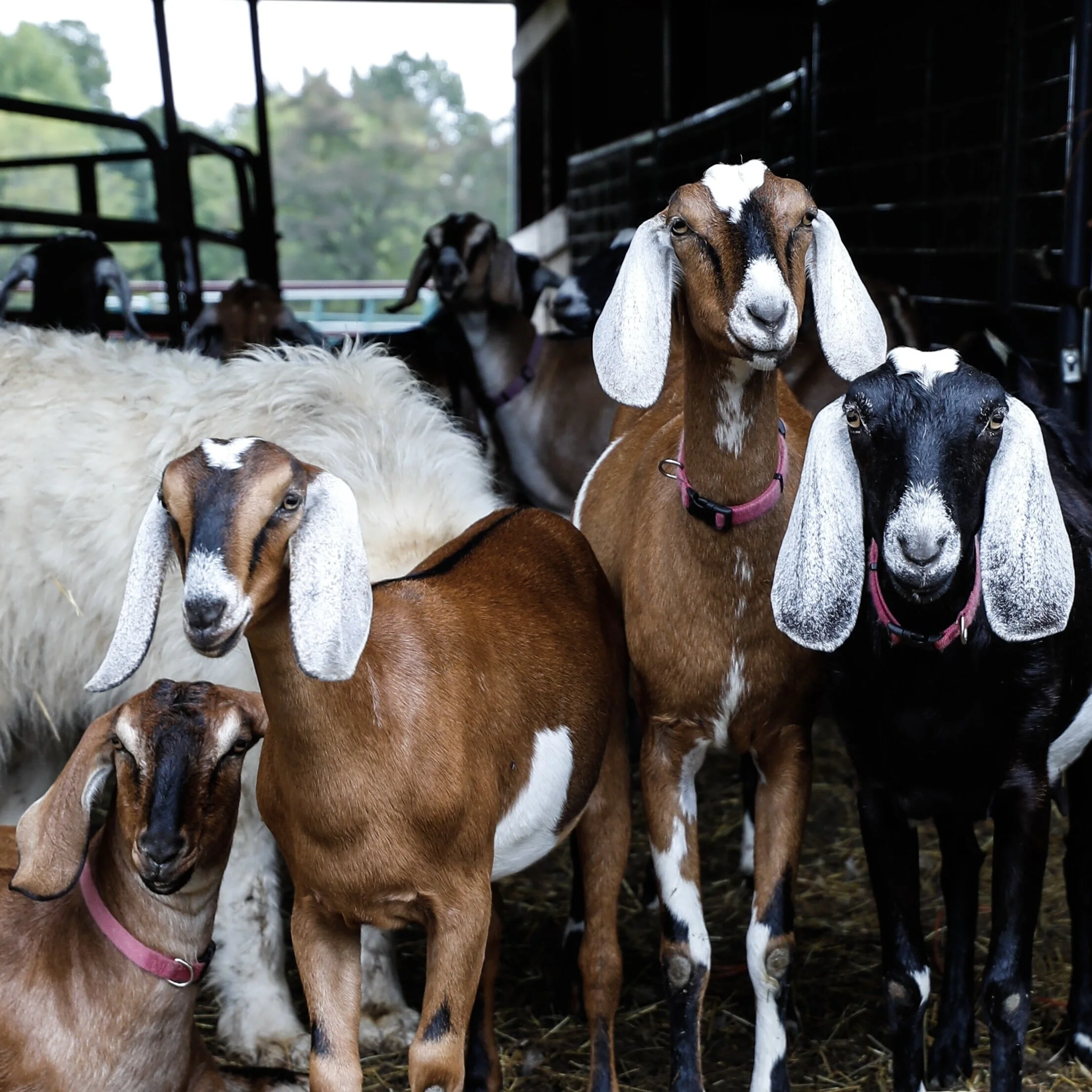The question I often want to ask any fundraiser who explains to me that they are frustrated and disappointed in their work is whether they know how to search out and identify opportunities that will ensure them an opportunity for meaningful work. Instead of discerning whether a new job will offer them the chance to shine in meaningful ways, I see far too many fundraisers gravitating toward alluring mission statements and charismatic bosses who ultimately let them down. My guest today on The Fundraising Talent Podcast is Scott Perry who has made it his business to help his clients improve these types of discernment skills. Scott wants to ensure that, rather doing work fraught with disappointment and burnout, all of us have the opportunity to flourish and thrive in our workplaces.
Read MoreMy conversation today with Gretchen reminded me of some of the observations that I have made concerning boards and fundraising. Throughout my career I have noticed two consistent yet disparate themes that I suspect those with even a brief tenure in fundraising will be familiar with. The first is what we might call “board knows best”: board members whose inclination is to always assume the existence of expertise that the fundraiser doesn’t have and therefore they must provide. The second theme, perhaps a defense mechanism in response to the first, is what we might call “blame the board” which is the tendency of nonprofit leaders and their fundraisers to scapegoat the board for all the reasons fundraising isn’t working. Neither storyline is particularly helpful, and I am hopeful that our listeners have the benefit of working for organizations that have matured beyond both of them.
Read MoreCarrie and Laura picked up on something during the pandemic that perhaps others were overlooking; while all of us were working remotely, many of us were experiencing extraordinary fundraising outcomes yet always insisting that they were eager to get back to the office. Why? What necessity is there for attending to the rituals of the office when we can achieve the same or perhaps even greater outcomes from home? When it comes to fundraising, especially for those whose focus is on major donors, do the obligations of the office do more harm than good? These were the questions I discussed with Carrie and Laura today on The Fundraising Talent Podcast. If your team has been discussing the idea of not returning to the office, you’re not going to want to miss this conversation.
Read MoreThis week our guest is Sybil Ackerman-Munson at Do Your Good. Sybil shared with us the three types of donors that every fundraiser should know and understand. For two decades, Sybil has been a trusted advisor and has helped give away over $45 million. Sybil has served on numerous boards, task forces, and stakeholder groups; and what I most appreciated about our conversation today was that her insights have emerged from experience with being on both sides of the charitable gift exchange.
Read MoreA consistent theme in my conversations lately is that fundraisers need to be more diligent in determining who they work for and knowing whether they’re signing on for a job in which they can successful or one from which they will end up resigning in less than two years. It occurs to me that my conversation today with Cindy about her new book Raise It! The Reluctant Fundraiser's Guide to Raising Money Without Selling Your Soul may be a great place to begin improving this level of discernment. Cindy’s book raises asks whether we can effectively rewire our brains to address the reluctancies we have towards fundraising. Cindy insists that rewiring how we think about fundraising is the only way to ensure we’re getting in front of our donors in meaningful ways, enjoying the work, and securing extraordinary gifts that advance our missions.
Read MoreI have enjoyed getting to know Brian and am eagerly awaiting the next time I’m in Indy so that, as we did just months before the pandemic, we can enjoy great food and drinks as we banter about how to fix all of fundraising’s problems. Brian, now Vice President for Research at RNL, has been an annual giving and major gift officer and hosts the Fundraising Voices podcast. Lately, he has been asking if we can build an equation that increases giving? As Brian shared with us today, the donation equation combines six factors drawn from top industry insights that have been shown to increase the chance a donor will give to your organization.
Read MoreI recently asked my friends Rebecca and David to join me to discuss an article that David had written about what leaders in higher education should expect of fundraising in the next year. Our conversation offered a whole new layer of meaning to David’s encouragement that advancement leaders need to be carefully thinking about renewal, re-engagement, and raising the bar. Perhaps what was profound about this conversation was the notion that fundraisers learn how to appropriately “dwell” with a donor in order to ensure that they are putting the relationship ahead of whatever proposal we are trying to advance. Afterwards, I had to double-check my understanding of what it means to “dwell” with someone; it is not a term I’m accustomed to using and certainly something I wanted to contemplate more.
Read MoreCaitlyn wants to know what is holding back some nonprofits back from asking their donors for more significant and unrestricted gifts. While Caitlyn knows these types of exchanges aren’t sexy and may not seem all that appealing to some of our donors, they arguably provide an organization with the most flexibility in advancing their mission. But suppose our understanding of how we arrive at such opportunities is flawed? Caitlyn has learned that investing in relationships that lead to more in-depth conversations is the path to discovering where these opportunities can be found. Unfortunately, some leaders won’t encourage their fundraisers to venture down the exploratory path and, therefore, never connect the dots between the tight restrictions applied to a gift and their lack of investment in relationships.
Read MoreWe have had a number conversations of the sort that Ben and I had today; and, admirably, all of our guests are generally very forthright about where they stand amidst debates about competing fundraising ideologies. Ben believes that too few individuals like him and me, white men of privilege, are doing their part in these conversations and that we all need to collectively acknowledge the inherent racism baked into our system. As someone who insists he’s in this for the long-haul, Ben wants to see a greater tolerance of risk, an inclination to lean into more than just what makes us comfortable, and the pursuit of more than job security.
Read MoreJohn tells us that after the pandemic became our reality in March of 2020 he was slow to enact too many changes and that perhaps like most of us, he was unsure whether this was going to last weeks, months, or years. After a few weeks of just taking it in, John was convinced that getting back to normal wasn't going to happen. John insists that in many ways how we conduct the business of fundraising has been changed forever. John believes the pandemic has given all of us opportunity to pause, rethink and refocus how we go about our work. And when asked whether that is necessarily a bad thing? John insists, absolutely not.
Read MoreIn today’s conversation with Dominique we wrestle with the question of whether special events can ever measure up to the expectations that we have for them and, in our determination to see that they do, how much of the status quo are we are willing to let go. Dominique insists that special events are among the most transactional fundraising strategies that our sector relies on and that it is highly unlikely that attendees will engage in long-term partnerships. Dominique also challenges us to consider whether our events should continue to be designed for performative allyship and the momentary sense of changing the world or whether they can evolve in ways that elevate, celebrate, and reflect the communities that our organizations serve.
Read MoreThis morning I was delighted to, once again, enjoy a conversation with our friend and fundraising colleague, Travis. In addition to keeping his feet in the field as a major gifts officer, Travis is the founder of Role Identity Solutions and an adjunct at the Lilly School of Philanthropy. Any of our regular listeners will know that Travis has afforded us several enlightening conversations here on the podcast, and I am grateful that he has also been one of the contributing authors to Responsive’s recent edition of Carefully and Critically. In his article, Travis asked what we in fundraising can learn from bad market research. What we can glean from the misadventures of the team at Segway is similar to what we learn as fundraisers when we are overly presumptuous about a donor’s interest in a particular initiative or when we overlook the possibility that their charitable interests have changed completely.
Read MoreUnless you have been living in a cave or under rock for the last couple of months, you’re aware that the labor market is hot as hiring freezes are over and the great resignation is being talked about in all types of industries. My conversation today with Wendy was all about how nonprofits are navigating this phenomenon and how leaders can ensure their people aren’t bailing on them. Wendy has devoted her entire career to serving nonprofit organizations and continues to do so as the managing partner at Boyden’s Boston Office.
Read MoreIt was perhaps two years ago when a mutual friend introduced me to Meghan, and I immediately felt compelled to help elevate her ideas throughout the sector. Not only do I believe that Meghan represents a smart and ambitious generation of young leaders, but she is also demonstrating extraordinary courage in sharing her opinions both as a guest on the podcast today and as the featured contributor in our recent edition of Carefully and Critically. Meghan provided our readers with a very timely and provocative article that begged the question of whether our sector can learn how to better center the voice of the marginalized communities that we serve and offers a counter-narrative for how meaningful and effective a more community-based approach can be for those on either side of the exchange.
Read MoreNonprofit bosses and hiring managers, are you trying to understand why your fundraiser just bailed on you? If so, this is the podcast conversation you need to hear. I met Kate after speaking at the Ottawa fundraising conference back in May, and we subsequently struck up a conversation on social media. Kate insists that we have got to stop sending a million emails as if we’re communicating with passive consumers and start treating our donors like human beings who actually matter to us. What quickly emerged from our conversation was the idea that perhaps fundraising needs to make some bets on our donors as loyal citizens instead of relying on marketing gimmicks that are, by design, sending all the wrong messages. Kate believes that the “iPad babies” aren’t going to tolerate the cheap, shallow tactics contemporary fundraising has gotten itself way too invested in.
Read MoreI have quite enjoyed getting to know Angee, first at our roadshow in Toronto in partnership with our friend David Hutchinson, then as a guest on the podcast shortly thereafter; now Angee is back to share with us how she has navigated the pandemic with the help of Responsive’s three lanes model. It was quite encouraging to hear that the centerpiece of our sense-making toolbox provided a framework for Angee to think through how she might approach the uncertainty of what has been our reality for the last eighteen months. While often confused for a prescriptive plan, the three lanes are intended to help fundraisers make sense of what’s leaning in their favor with the help of a systems-level understanding of how fundraising really works. Rather than relying on experts who notoriously put their experience on loan only to ensure they are called upon over and over again, tools like the Three Lanes ensure that fundraisers develop expertise of their own.
Read MoreSam was our guest on the podcast a year ago, and at the time he was navigating the uncertainty of the pandemic combined with unemployment and the recent loss of some friends. The conversation we had was about the notion that fundraising is about listening to stories rather than telling them. I recall thinking then as I listened to his story that, despite the set-backs, Sam was a talented individual with a knack for fundraising and that it would just be a matter of time before he would find himself on top again.
Read MoreBefore the world shutdown, was your gala or golf tournament starting to wane? Are you ready to resume that event that, even before the pandemic, was perhaps yielding disappointing outcomes? Kevin wants event planners to consider abandoning what in some cases has evolved into an exhausting and uninspiring event generating nothing more than than a lot of small talk, and instead focus on genuine conversations among those at the table. Kevin wants us to take a chance on an unscripted engagement with fewer people around the table and, rather than being in control of everything, allow serendipity to do its part.
Read MoreIn her more than 30 years of fundraising, Penny has observed that the money has become increasingly more important than the donor's giving experience. I would venture to say that the same has become true for fundraisers. Arguably, donor attrition and turnover are merely two sides of the same coin. We have allowed the experiences of giving and receiving to take a back seat. To remedy this, Penny’s consultancy prioritizes renewing the support of current donors and ensuring a genuine human-to-human interaction that ultimately means a more meaningful experience for those on either side of the exchange.
Read MoreAre today’s fundraisers really itching for more best practices, expensive credentials and industry buzzwords? If they are anything like Jessica in upstate New York, I don’t think so. As I listened to Jessica share her story today, I heard an individual who wants the opportunity to show up as her authentic self; and she wants the same for her team. The way I see it, Jessica is part of an emerging generation of fundraising leaders who recognize that the donor rarely cares one iota about our assent to professionalism. They would much prefer we demonstrate that the cause matters as much to us as we know it matters to them.
Read More



















